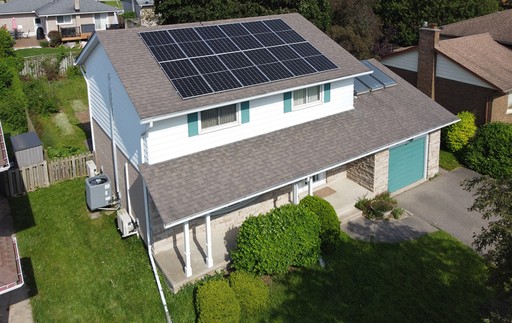Back to Index
Trusted suppliers
The following suppliers are reputable companies that have been established in the solar industry for many years, providing high-quality products and reliable customer service. These companies are known for their innovative solutions and commitment to sustainability.
SolarEdge
SolarEdge Technologies is a global leader in smart energy solutions, offering advanced solar inverters, power optimizers, and monitoring platforms. Established in 2006, SolarEdge’s DC-optimized systems enhance energy production by enabling each solar panel to perform independently. This maximizes efficiency and ensures greater system performance, even in shaded conditions. SolarEdge also provides energy storage solutions, electric vehicle (EV) charging, and smart energy management, making their products a popular choice for residential and commercial solar installations around the world.
SMA Inverters
SMA Solar Technology is a global leader in the development and production of solar inverters. With over 40 years of experience, SMA provides a wide range of inverters for residential, commercial, and utility-scale solar projects. Their products ensure optimal energy management, efficient grid integration, and high reliability. SMA is known for their advanced monitoring systems and innovative hybrid solutions that incorporate energy storage.
Fronius Inverters
Fronius is an Austrian company that has been a pioneer in the solar industry for decades. They specialize in producing high-performance inverters that are designed for long-term efficiency and maximum energy yield. Fronius inverters are known for their flexibility, easy installation, and advanced monitoring capabilities. Their product range includes solutions for residential, commercial, and industrial applications.
Tigo Systems
Tigo Energy offers innovative solutions for module-level power optimization, monitoring, and rapid shutdown. Their products work seamlessly with various inverters and solar panels, enhancing system performance and ensuring safety compliance. Tigo’s TS4 platform allows for real-time monitoring, which can maximize energy production by addressing shading or mismatch issues in solar arrays.
Canadian Solar
Canadian Solar is a globally recognized manufacturer of high-quality solar panels. Founded in 2001, the company provides solar photovoltaic modules, energy storage systems, and turnkey solar energy solutions. Canadian Solar is known for their efficient, durable, and high-performance solar panels used in both residential and commercial projects. They are a trusted name in the solar industry, offering advanced products at competitive prices.
LONGi Solar
LONGi Solar is one of the largest manufacturers of monocrystalline solar panels in the world. Their panels are highly efficient and built for both residential and large-scale solar power plants. LONGi is committed to innovation and sustainability, continuously pushing the boundaries of solar panel technology. Their bifacial panels and high-efficiency monocrystalline products are widely recognized for their performance and reliability.
Tesla Powerwall
Tesla Powerwall is a market-leading energy storage solution designed to store excess energy generated from solar panels for use when needed. The Powerwall allows homeowners to reduce their reliance on the grid by providing backup power during outages and optimizing energy usage for cost savings. With seamless integration into solar systems, it can store energy during the day and power homes at night. Tesla Powerwall offers smart monitoring via the Tesla app, allowing users to track energy production and consumption in real-time. It’s a popular choice for those seeking a complete solar and storage solution.

Residential Systems
What components are needed for a residential system?

Net Metering
Learn how net metering works and can save up to 90% from your energy bill.

What level of service or maintenance is required with solar installations?

What is the impact of solar panels on the environment.

Commercial Systems
What to expect when considering solar for your business.

Agricultural Systems
What do you need to consider before choosing a solar company for the farm?

Battery Backup
Should I get a solar battery for my home? Decide if the battery option is right for you.

Frequently Asked Questions
The most frequently asked questions you may not have thought of yet.


